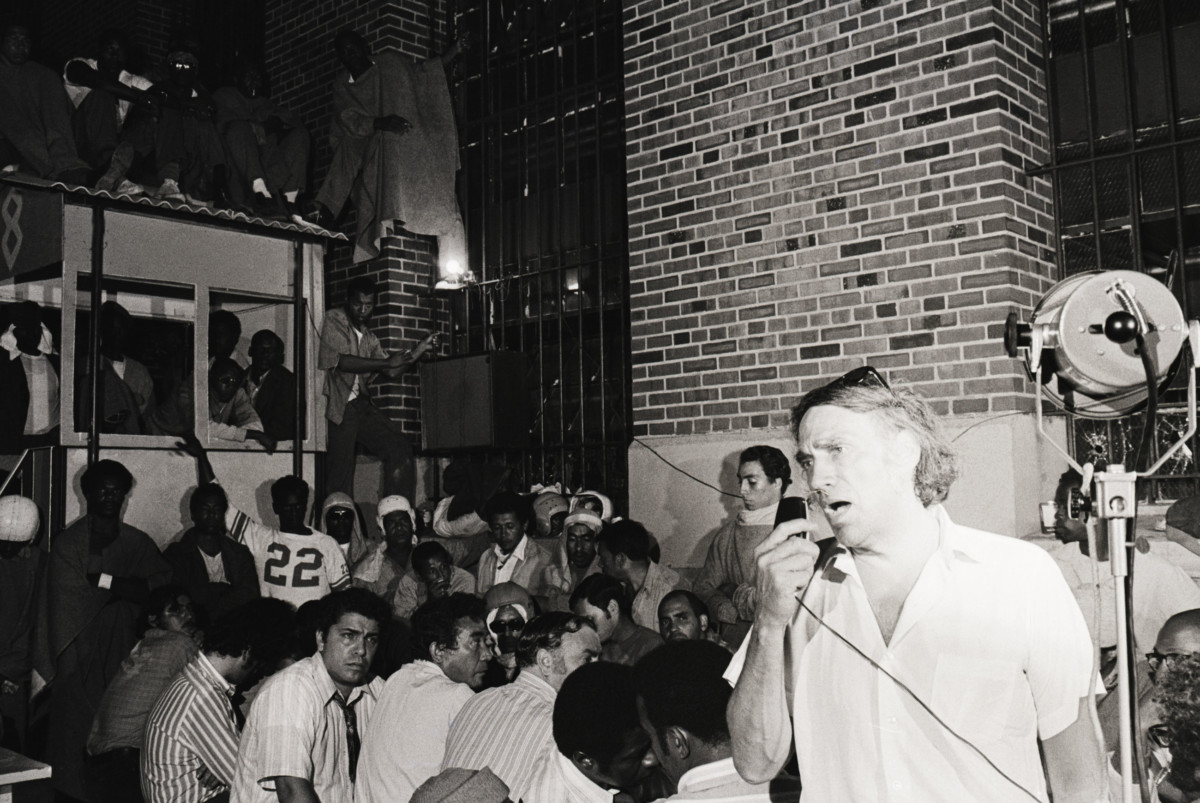Two Illinois prisons have censored Blood in the Water, the Pulitzer Prize-winning book by historian Heather Ann Thompson about the 1971 Attica prison uprising. Today, the Chicago-based Uptown People’s Law Center where I work is filing a lawsuit to challenge this unconstitutional and unethical censorship.
Communication with prisoners is vital to ensure they know what is occurring on the outside — as well as to ensure that those on the outside know what is happening inside prisons. If injustices inside prisons are not brought to light, they won’t be corrected.
By their very nature, prisons isolate those they lock up. It is difficult for the press, let alone the general public, to learn what is going on inside prisons, and it is equally hard for people in prison to learn what is happening beyond the prison walls. This was most recently made apparent by the difficulty reporters had covering the recent nationwide prison strike, timed by prisoners to commemorate the 1971 uprising by prisoners at Attica prison, which lasted from September 9 to 13.
Censorship of communications to and from prisoners is often arbitrary, designed more to protect prison officials from criticism than to further any other penal goal. Illinois, like many states, has extremely vague regulations, which effectively allow prison officials to censor virtually any communication to or from prisoners that they don’t like.
The arbitrary nature of censorship has recently been demonstrated in Illinois prisons with the suppression of Thompson’s book, Blood in the Water. This book is one of the most important texts illuminating the origins and causes of mass incarceration. Thompson describes in meticulous detail the events that preceded the uprising, what happened during the uprising, its aftermath, the decades of efforts by the prisoners and their advocates to expose what happened and the efforts by the state to resist that effort.
The arbitrariness of prison officials’ decision to censor Thompson’s outstanding book is readily apparent from the fact that, while her book was censored at Illinois’s Pontiac and Logan Correctional Centers, she was allowed to send exactly the same book at exactly the same time in February 2018 to Stateville Correctional Center (also in Illinois). The Uptown People’s Law Center, joined by pro bono attorneys at the Sidley Austin law firm, filed suit on behalf of Thompson, challenging the decision to censor her book.
While current laws clearly allow for communications to be censored, such as a letter advising a prisoner of a specific escape plan, the First Amendment places limits on such censorship: Anything that is barred from prisons must be barred for a demonstrable “security” purpose. Material cannot be forbidden just because prison officials find the information distasteful or embarrassing, or because they disagree with it.
Speaking about the lawsuit, Thompson said, “It is unconscionable that prisons forbid human beings on the inside to read any book, and I am determined to speak out on behalf of the First Amendment wherever it is being violated. My book underscores the sanctity of both correctional officer and prisoner lives, and covers an important event in American history that I have the right to share with any American who wants to learn about our country’s past.”
The point of Thompson’s book is that mass incarceration was built on prison officials’ false narratives about the Attica uprising. The book itself contains the perfect argument for why such censorship should not be allowed in our prisons. As the philosopher George Santayana said, “Those who cannot remember the past are condemned to repeat it.”
Press freedom is under attack
As Trump cracks down on political speech, independent media is increasingly necessary.
Truthout produces reporting you won’t see in the mainstream: journalism from the frontlines of global conflict, interviews with grassroots movement leaders, high-quality legal analysis and more.
Our work is possible thanks to reader support. Help Truthout catalyze change and social justice — make a tax-deductible monthly or one-time donation today.
